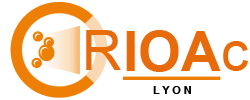Past and Future of Phage Therapy and Phage-Derived Proteins in Patients with Bone and Joint Infection
Phage-derived therapies comprise phage therapy and the use of phage-derived proteins
as anti-bacterial therapy. Bacteriophages are natural viruses that target specific bacteria. They were
proposed to be used to treat bacterial infections in the 1920s, before the discovery and widespread
over-commercialized use of antibiotics. Phage therapy was totally abandoned in Western countries,
whereas it is still used in Poland, Georgia and Russia. We review here the history of phage therapy
by focusing on bone and joint infection, and on the development of phage therapy in France in
this indication. We discuss the rationale of its use in bacterial infection and show the feasibility of
phage therapy in the 2020s, based on several patients with complex bone and joint infection who
recently received phages as compassionate therapy. Although the status of phage therapy remains
to be clarified by health care authorities, obtaining pharmaceutical-grade therapeutic phages (i.e.,
following good manufacturing practice guidelines or being “GMP-like”) targeting bacterial species
of concern is essential. Moreover, multidisciplinary clinical expertise has to determine what could be
the relevant indications to perform clinical trials. Finally “phage therapy 2.0” has to integrate the
following steps: (i) follow the status of phage therapy, that is not settled and defined; (ii) develop
in each country a close relationship with the national health care authority; (iii) develop industrial–
academic partnerships; (iv) create academic reference centers; (v) identify relevant clinical indications;
(vi) use GMP/GMP-like phages with guaranteed quality bioproduction; (vii) start as salvage therapy;
(vii) combine with antibiotics and adequate surgery; and (viii) perform clinical trials, to finally (ix)
demonstrate in which clinical settings phage therapy provides benefit. Phage-derived proteins such
as peptidoglycan hydrolases, polysaccharide depolymerases or lysins are enzymes that also have
anti-biofilm activity. In contrast to phages, their development has to follow the classical process of
medicinal products. Phage therapy and phage-derived products also have a huge potential to treat
biofilm-associated bacterial diseases, and this is of crucial importance in the worldwide spread of
antimicrobial resistance.



